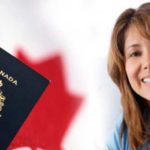As globalization continues to redefine borders and the movement of people, more Canadians are finding themselves living abroad. Whether for work, study, or adventure, being a Canadian expat offers a wealth of experiences and opportunities. However, one critical aspect that all Canadian expats must consider when traveling back to Canada or visiting other countries is the need for an Electronic Travel Authorization (eTA). Understanding the eTA's purpose, application process, and implications is crucial for any Canadian living outside the country.
A new move by the Government of Canada makes it compulsory for Canadian expats to carry Canadian passport. Without a passport from their home country, authorities will not allow them entry into Canadian borders. People recognize someone as a dual citizen when they hold citizenship in two countries.
What is eTA?
The Electronic Travel Authorization (eTA) is a digital entry requirement for visa-exempt foreign nationals traveling to Canada by air. Introduced by the Government of Canada in 2016, the eTA system aims to enhance border security and streamline the travel process. Although Canadian citizens do not require an eTA to enter Canada, it’s essential for Canadian permanent residents and certain other foreign nationals. However, the need for an eTA may come into play when Canadians are traveling to other countries.
The constitution of Canada enables citizens to take up foreign nationality while retaining their Canadian nationality. People who choose to gain a foreign nationality and live outside Canadian borders refer to themselves as Canadian expatriates. These expats had no obligation of carrying their passports but all of this has changed with the advent of a new system, Electronic Travel Authorization (eTA).
A spokesperson from Immigration and Citizenship Canada stated, ‘The Government of Canada is implementing a new electronic system to assist airlines in verifying that all travelers have the appropriate documents to travel to or transit through Canada by air,’
This will also make it obligatory for the airlines to check that each passenger heading to Canada has the appropriate documents required to enter the confines of that country. The spokesperson also added, ‘Every Canadian citizen has the right to enter Canada and is not subject to immigration screening. Travelling with a valid Canadian passport proves that you are a citizen. If you don’t have a valid travel document that proves your Canadian citizenship at check-in, you may not be able to board your flight. People need to be prepared and should renew or apply for a Canadian passport as soon as possible,’ the spokesman added.
A passport is a universal proof of nationality. This particular document will give you the right to enter Canada even when you are an expat. This new system will be made mandatory and no leniency will be shown to the expats after 30 September 2016. You should consider applying for a temporary passport or emergency travel document if your passport has expired.
Of you do not have a Canadian passport or have lost one for more than a year then you should consider applying for a new passport. To apply for this particular document you need to be:
- a Canadian Citizen
- Above the age of 16.
To apply for passport for kids under the age of 16 you must provide documented proof that you are the legal guardian or custodian parent of the child.
The Application Process
Applying for an eTA is a straightforward process, typically taking only a few minutes to complete online. Here’s how Canadian expats can navigate the application:
- Gather Required Information: Applicants need to provide personal details such as their passport number, contact information, and travel plans. It’s essential to ensure that the passport is valid for the duration of the trip.
- Access the Official Website: The application must be submitted through the official Government of Canada website. Avoid third-party sites that may charge additional fees or complicate the process.
- Pay the Fee: The eTA application comes with a nominal fee (currently CAD 7). Which can be paid online using a credit card.
- Receive Confirmation: The system processes most eTA applications within minutes, and applicants receive an email confirmation. However, it’s wise to apply at least a few days in advance of travel, as some applications may require further verification.
- Check Validity: Once approved, an eTA is generally valid for up to five years or until the passport expires, whichever comes first. This allows Canadian expats to travel back to Canada multiple times without needing to reapply for each trip.
To get your passport renewed, you must meet the following criteria’s:
- Must have been 16 or over at the time passport was issued.
- Your passport must not have expired for more than a year.
- Must not change the essential information like name, sex, date and place of birth.
- You must never report your passport as stolen.
- You must not damage your passport.
To renew your passport, you can apply through mail.
You need to apply in person to renew your passport within 20 days.
You must fill out an application form and submit it in person or by mail.
Attach 2 identical passport photos and the most recent passport you want to renew.
Two references, who have known you for more than 2 years need to include in the renewal application. The references must not have been your guarantor or a family member and must be 18 years of age or above.
You can make your payment online through credit or debit cards and offline through money orders. These passport offices do not accept cash or personal check. You will receive your renewed passport through mail if you would have signed up for a pickup service.
You can apply for the eTA online, and the system processes and grants it within a few minutes. Sometimes it can take up to a few days due to some discrepancy in the information provided by the applicant. The eTA is not only useful for Canadian expats but also for people from visa exempt countries. You should apply for an eTA at least a week before you need to fly to Canada.






